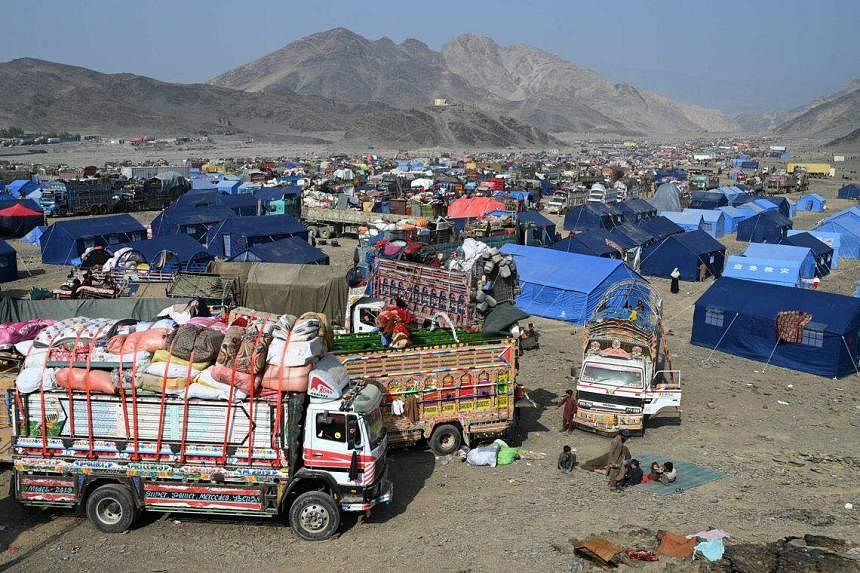
The plight of refugees has always been a globally resonant narrative, one that intertwines the delicate fibers of human resilience and vulnerability. In Pakistan, this narrative takes a unique form, as the country grapples with complexities of repatriating undocumented Afghan refugees. This situation is not merely a policy challenge; it’s a poignant reflection of the intricate balance between humanitarian considerations and the pragmatic realities of national security and economic constraints. Refugee crisis is a global humanitarian challenge, and the plight of Afghan refugees in Pakistan is a stark reminder of this ongoing issue. Pakistan, grappling with its own economic and security constraints, faces a daunting task in managing this crisis.
The issue at hand is not just repatriation but also the understanding of intricate interplay of regional politics, economic pressures, and security concerns.
Pakistan has been host to millions of Afghan refugees for decades, a testament to its longstanding commitment to humanitarian principles – For 4 decades, Pakistan has hosted over 4 million Afghan refugees, out of which 1.7 million are residing illegally.
Diplomatic Dance: The Pakistan-Afghanistan Repatriation Challenge
At forefront of this multifaceted issue lies the repatriation of Afghan refugees, a facet that carries substantial diplomatic implications. It’s crucial to pay attention to the warnings from Afghan officials about potential strains on our bilateral relationsand consequences for Pakistan. The delicate geopolitical dance between Afghanistan and Pakistan has always been perplexing, shaped by historical contexts and regional dynamics. The current situation adds additional dimension of uneasiness to this relationship, potentially impacting the broader regional stability.
Moreover, there’s a concern that this stress might push the Taliban, historically linked with Afghanistan, closer to India. Such a shift could have far-reaching consequences for regional dynamics, particularly given the perpetual tensions between Pakistan and India. This situation necessitates a balanced diplomatic approach, one that respects the concerns of neighboring countries while upholding Pakistan’s national security interests.
Security and Survival: The Dual Challenge of Afghan Refugees in Pakistan
The security implications of harboring undocumented migrants are equally critical. Beyond the evident strain on law enforcement resources, this situation creates vulnerabilities that can be exploited by malicious actors. The recent flurry of terror incidents in Pakistan, following the voluntary repatriation deadline, raises alarm bells, indicating a possible correlation between these security challenges and the repatriation of Afghan refugees. This correlation is not just a statistical coincidence but a matter of national security that requires careful scrutiny and a nuanced understanding.
The substantial economic burden of undocumented Afghan refugees on Pakistan also requires examination. Their presence, while rooted in their search for safety and normalcy, inadvertently exacerbates the already strained Pakistani economy. The impact is multi-dimensional, stretching scarce resources and overburdening public services. In a country battling to stabilize its economic landscape, this added pressure isn’t merely a macroeconomic consideration; rather, it is a tangible reality that affects daily lives of its citizens.
The repatriation of Afghan refugees weaves a complex tapestry that extends beyond geopolitical considerations. Ordinary citizens navigate the daily impact of this multifaceted issue, feeling the strains on resources, the potential for regional instability, and the delicate diplomatic intricacies. Homes, businesses, and communities are intimately connected to the challenges posed by the presence of Afghan refugees. The burden on resources, coupled with the economic and security dimensions, introduces a common thread of concern among the general populace.
As Pakistan steers through intricate layers of its repatriation strategy, the social dimension becomes an integral part of the narrative, demanding both empathy and understanding.
Humanity and Homeland: Pakistan’s Conundrum with Afghan Refugees
Pakistan’s role as a host to one of the largest refugee populations in the world, and as a transit state for many seeking asylum elsewhere, further complicates the scenario. This dual role reflects a reality where Pakistan has shown considerable compassion in the face of its own challenges. It’s a testament to the country’s commitment to upholding humanitarian values, even as it navigates its economic and security challenges.
In the broader global landscape, where the movement of people, particularly refugees, is a subject of intense international concern and debate, Pakistan’s decision to repatriate Afghan nationals becomes a pivotal point. Pakistan’s interim government, operating within the constraints of a fragile and limited setup, has made the unpopular decision of repatriation. This decision, however, underscores the gravity of the situation for Pakistan, emphasizing the paramount importance of national security and the significant economic challenges it faces.
In addressing these challenges, Pakistan’s approach has been multifaceted. On one hand, there is an undeniable need to safeguard its borders and maintain internal security. On the other, there is a deep-rooted understanding of the humanitarian aspect of this crisis. Each undocumented individual represents a life uprooted by conflict and uncertainty. The decision to repatriate, thus, is not taken lightly but is weighed against the backdrop of complex humanitarian considerations.
Navigating this labyrinth of challenges calls for a global perspective that recognizes the intricacies of each nation’s circumstances. It’s about fostering a nuanced understanding that goes beyond the conventional narratives. As Pakistan continues to address these challenges, the international community’s role in providing support and understanding becomes crucial. This is not just Pakistan’s journey but a part of the larger, ongoing global dialogue on migration, security, and humanitarianism.
While underscoring the significance of the humanitarian dimensions inherent in the refugee crisis, it is equally crucial to take into account Pakistan’s commitment to its national interests and legitimate security concerns. This serves as an earnest invitation to the global community to engage in a more informed and empathetic discourse, one that appreciates the complexities nations face in balancing national interests with humanitarian obligations. The path forward, albeit challenging, is one that requires collective understanding, cooperation, and a commitment to finding solutions that are just, humane, and pragmatic.



















Leave a Reply